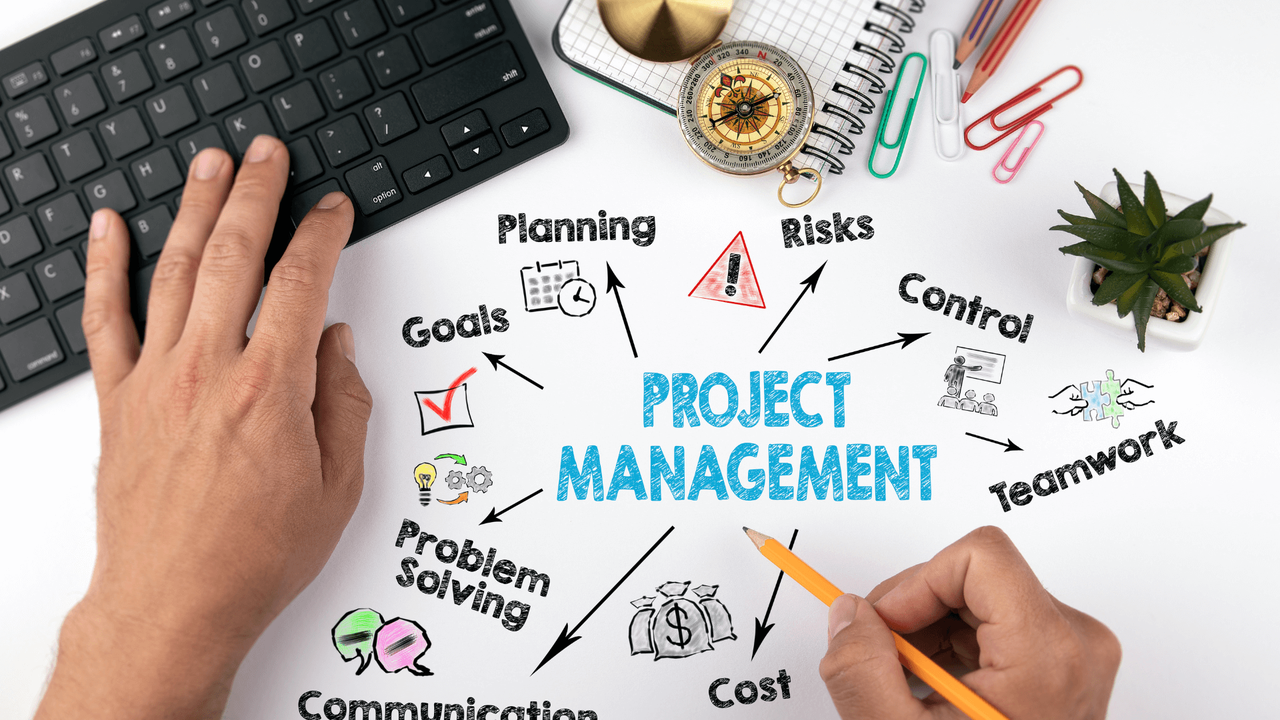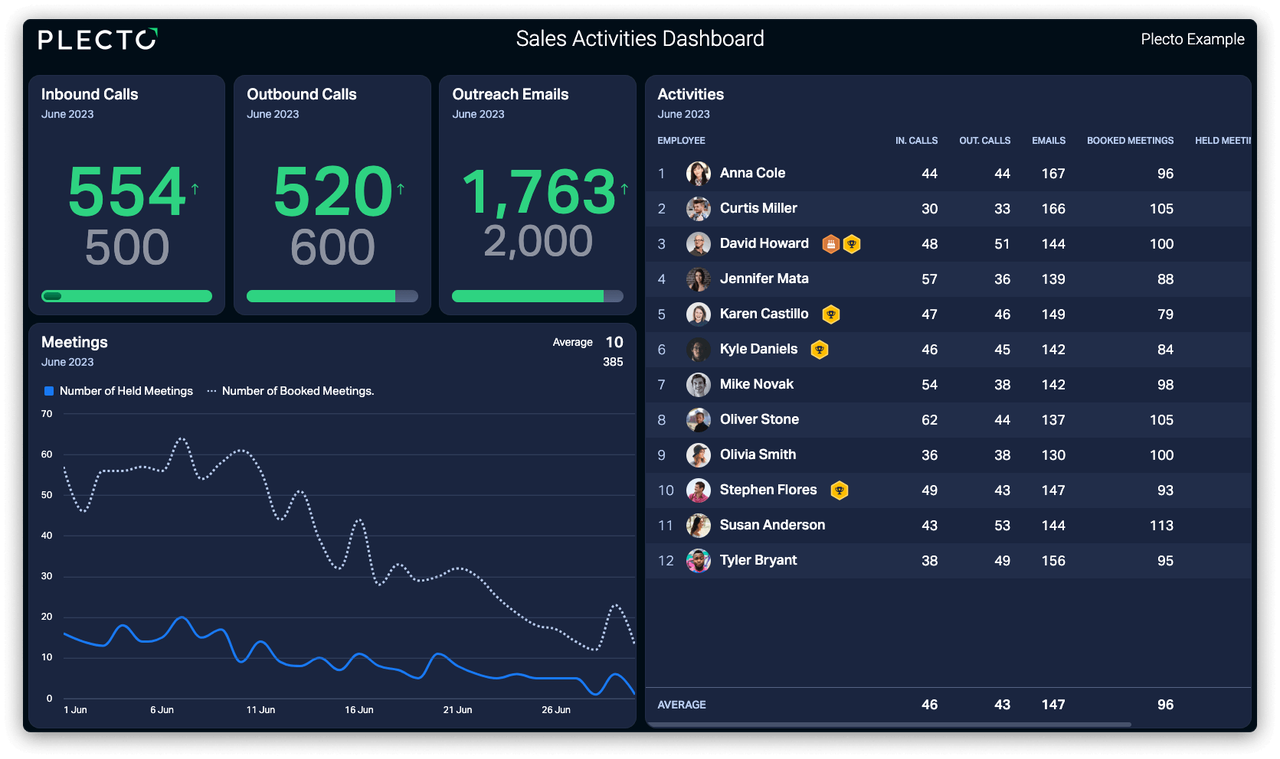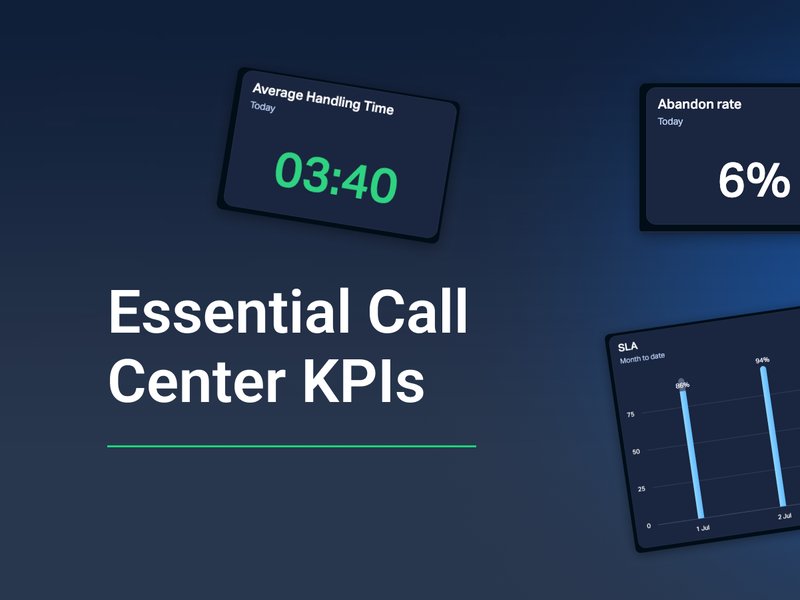Project management is the implementation of specific methodologies, processes, and knowledge to help you achieve particular outcomes during a project. Essentially, it's the planning and organization of a project to help ensure it goes well, and it's crucial in businesses.
When managing a project, the more data you have about how it's going, the more equipped you'll be to have a successful outcome. This data is also known as KPIs (key performance indicators), and there are many different options that you can track.
But before we dive in, let’s quickly explore why KPIs are important in managing your projects.
What Makes a Good Project Management KPI?
Not all project management KPIs are created equal. When managing a project, you must be tracking metrics that are effective and that provide value. It's also important to track useful metrics for your needs and goals.
To ensure that you're focusing on the best KPIs to help you develop a good insight into your projects, they need to be measurable, actionable, and visually understandable. If a project management metric is missing even one of these characteristics, it won't be effective.
Make it Measurable
A KPI will only be helpful if you can measure it and quantify the information into a dataset. The whole point of tracking KPIs is to measure your performance in the present against what it was in the past or agreed upon targets. This will be tough to do if your project management metrics are hard to measure.
The best way to measure project management KPIs is by finding percentage rates and other tangible numbers.
Lights, Camera, Actionable!
KPIs are only useful if they're actionable. To have an actionable KPI, you need to have a specific goal in mind that you're trying to achieve with the KPI. This means that once you reach the goal or fall short, you can change your approach and do something differently in your project to get a new outcome.
Jack Underwood, CEO of Circuit, says, "There's little benefit in tracking performance management KPIs for the sake of it. You need to have a goal that you want each KPI to achieve so that you can determine if you're project is a success or not. Having this context on your KPIs makes them far more useful."
Ensure They're Visually Understandable
You're likely tracking a lot of different metrics when monitoring your project. This means the most effective project management KPIs will be those you can easily understand through a snapshot.
Tracking metrics that are easily displayed on a dashboard makes them far more useful, as you can utilize the data from them effectively and quickly.
Build your first dashboard.
Start your 14-day free trial today
8 Most Important Project Management Metrics
There are many project management metrics that you can track that give you an indication of how well your projects are running. That said, some of them are super-specific and may not be suitable for your project, so it's essential to identify and track the project management KPIs that are relevant to you.
Here's a rundown of some of the most important KPIs you will likely want to include in your project management dashboard. If you need something more bespoke, you can always create custom KPIs to suit your needs.
1. Planned Value (PV)
The planned value is an estimated cost of all the activities within your project that have been scheduled and planned from the date you want to start reporting. The planned value is a great KPI to compare with others, as it can help you see how much you're actually spending compared to your initial estimations.
In addition, the planned value is a great way to limit unnecessary spending. Jesse Galanis, Content Manager of Tech Lockdown, thinks, "Tracking planned value is a great way to promote careful spending during your project. Having an estimated cost visible gives your team something to aim below, helping you to be more economical with your spending."
Planned value can be worked out by multiplying the percentage of tasks left to complete with the overall project budget.

2. Actual Cost (AC)
Actual cost is one of the best KPIs for budget tracking. This KPI indicates how much money you've spent on a project to date, and it's one of the easiest KPIs to work out. To get your actual cost, you just need to add up all your expenses on the project to date.
Log things like salaries, resources, and more when calculating the actual cost. Knowing how much you've spent so far can help you see if you're on track to spend over your budget, making it a useful KPI to have on your dashboard.
3. Return on Investment (ROI)
The ROI KPI is a great one to track at the end of a project, as it helps you identify if a project has been profitable and see how much it's earned compared to the project's costs.
This project management metric is derived from other KPIs like Actual Cost and Earned Value, using these numbers to see how much profit the project has made. Just remember when measuring ROI that not all projects are designed to be profitable. Sometimes, the effects of a project are only seen in the long term.
4. Cost Variance (CV)
Cost variance is a great way to see if your project has matched expectations regarding cost or if you've underestimated how expensive it will be. It lets you know if you've gone beyond or below the planned baseline, which can be helpful to know when planning future projects.
You can work out the cost variance by comparing the planned and actual budgets. The difference is the cost variance.
Regarding cost variance, Linda Shaffer, Chief People Operations Officer at Checkr, says, "It's hard to correctly estimate how much a project will cost. By tracking cost variance, you'll see how far off your initial estimations were, helping you tighten up your estimations for future projects."
5. Cost Performance Index (CPI)
This KPI is very effective at measuring the performance of those working on your project and lets you quantify how much you're behind or ahead of your planned timeframe. This KPI is often presented as a ratio and is worked out by looking at your planned budget against what you've spent to accomplish your project's tasks.
As it looks at these metrics, it's a great way to see how cost-effective you've been on the project so far.

6. Resource Capacity Utilization (RCU)
It's unlikely that a single team member will spend all their time on a single project, as workers will have multiple on the go simultaneously. As a result, tracking how much time each worker spends on a particular task is worthwhile.
This KPI lets you know how much of their available work hours a staff member spends on a single project, which can also help you determine how effective they're with their output.
It's worked out by dividing a team member's work hours on a project by their total work hours and then multiplying by 100 to find a percentage. So a worker with 40 hours a week available, who's spent ten on a single project, will have an RCU of 25%.
Jonathan Elster, CEO at EcomHalo, says, "Resource capacity utilization is very important in project management. With it, we can see who's spending the most time on a project and help us better plan which workers to assign to a project."
7. Project Velocity
Project Velocity is an excellent metric for teams working in sprints. It measures the amount of work that's been completed during the timeframe and can help you plan how much work you can do in the next sprint.
When measuring project velocity, Volodymyr Shchegel, VP of Engineering at Clario, says, "Over time, you want to see the project velocity trend upwards. This means your team is becoming more efficient and better at their tasks."
8. On-Time Completion Rate
Seeing the number of tasks you've completed in your project can help you sort out potential problems before they become an issue. By seeing how much work you've completed within your deadlines, you'll be able to determine the likelihood of you finishing the entire project before your planned timeframe. If you can see that you're behind, you'll be able to make changes and pull in more resources to ensure the project is successful.
Alex Milligan, the Co-founder of NuggMD, says, "On-time completion rate is one of the most important project management metrics we track. It helps you put a number on your team's productivity and gives you insight on what takes consume more time than others."
If you're finding that your team is often late completing tasks and projects, you can encourage better performance through gamification. By adding things like achievements and points, you'll boost productivity.
Conclusion
How you monitor and track your projects can be the difference between them being successful. By using KPIs, you'll better understand how well your projects are panning out, allowing you to make changes to boost their effectiveness.
There are many different project management metrics that you can use, and it's crucial to find the ones that work best for your goals. These eight are some of the most vital and widely used to get you started but to be most effective, but it's best to create your own metrics to suit your specific needs.
Erika Rykun is an independent copywriter and content manager. She is an avid reader who appreciates unread books more than read ones.




